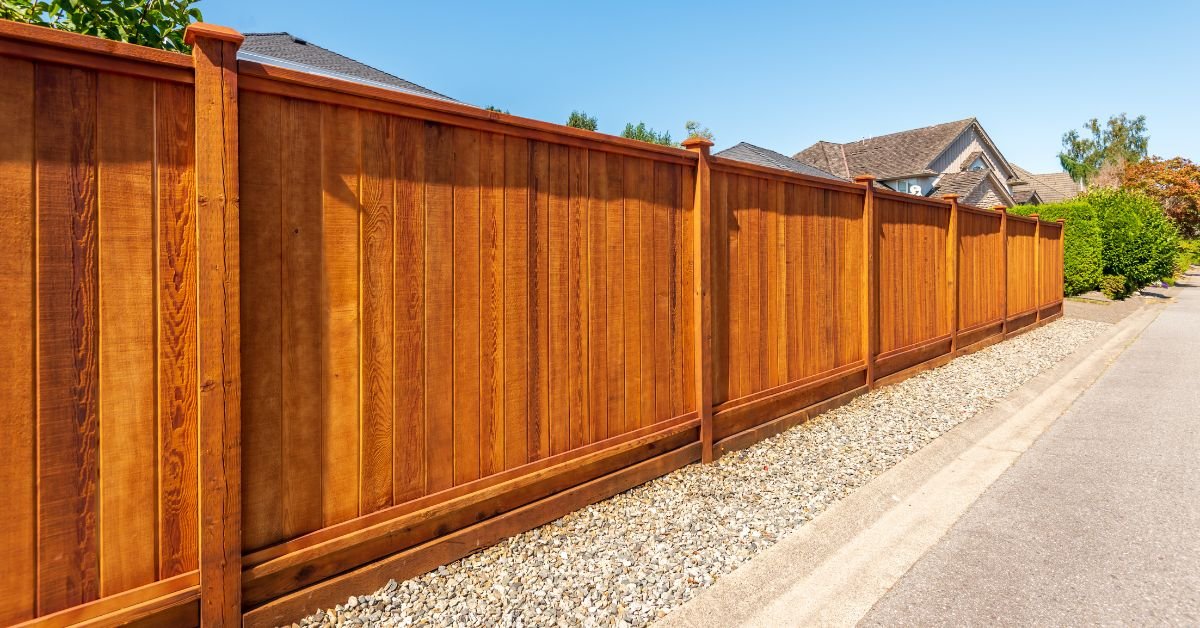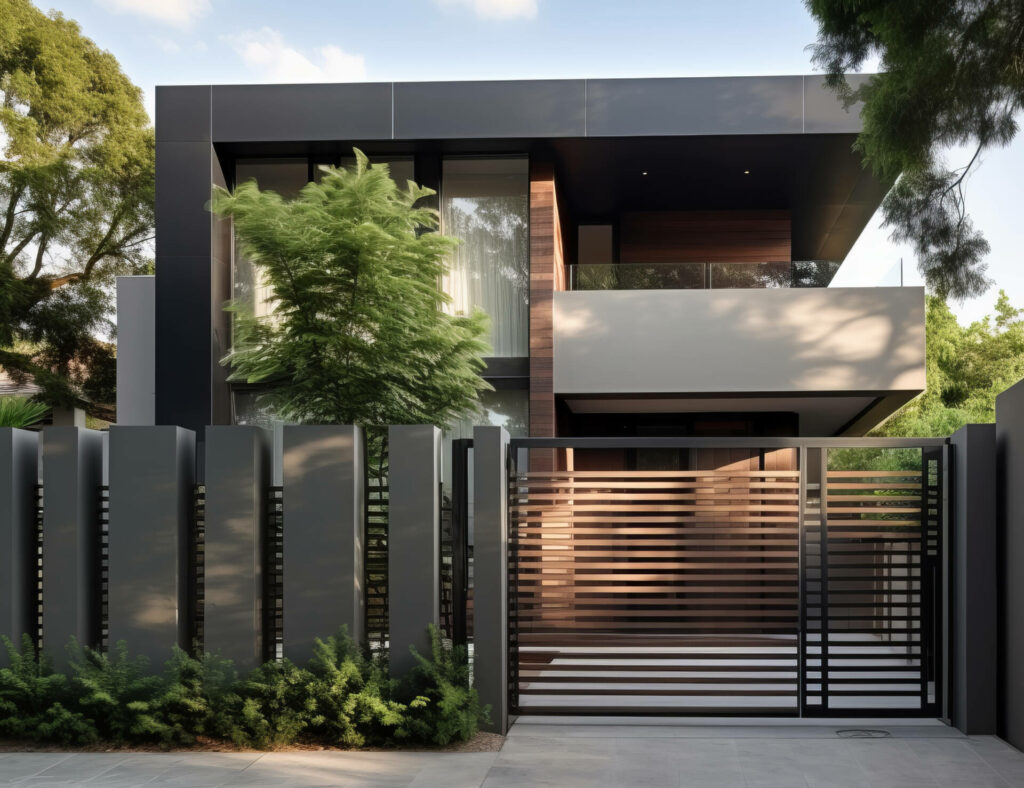All Categories
Featured
What Sorts Of Fence Products Are Offered for Residential and Commercial Projects?
Fencing is a crucial aspect in both property and industrial properties, providing safety, privacy, and aesthetic charm. With many fencing materials offered today, choosing the right option depends on your certain requirements, budget plan, and the function of the fence. Below's an overview of the most preferred secure fencing materials and their advantages to aid you make a notified choice.- Timber Fencing. Wood is among one of the most functional and conventional products for fence. Its all-natural beauty makes it a prominent choice for household projects.
Benefits of Timber Secure Fencing:
Visual Allure: Available in a variety of designs, including picket, divided rail, and personal privacy fences. Adjustable: Can be repainted or tarnished to match your residential property's outside. Affordability: Wood fencings are cost-effective, specifically for smaller tasks. Factors to consider: Timber requires regular maintenance to prevent bending, rot, and parasite damages.
- Plastic Secure fencing. Vinyl secure fencing has obtained popularity for its durability and low-maintenance top qualities, making it optimal for both domestic and commercial residential properties.
Advantages of Plastic Fencing:
Toughness: Immune to rot, bugs, and extreme climate conditions. Low Maintenance: No painting or staining required; a straightforward clean maintains it looking new. Variety of Styles: Imitates the appearance of timber, offered in various shades and styles. Factors to consider: Greater preliminary price compared to wood, but the durability usually offsets this cost.
- Aluminum Fence. Light weight aluminum is a lightweight yet solid material, generally used for ornamental or safety and security functions in both industrial and residential setups.
Advantages of Light Weight Aluminum Fence:

Corrosion Resistance: Perfect for wet climates or locations near water. Customizable Designs: Offered in a variety of styles and shades. Low Upkeep: Needs minimal maintenance over time. Considerations: While not as durable as steel, it provides a great equilibrium of longevity and design.
- Chain-Link Fence. Chain-link secure fencing is a functional and affordable choice, often used in business properties, schools, and industrial locations.
Benefits of Chain-Link Fencing:
Cost: Among the most cost-efficient choices for large jobs. Durability: Stands up well to weather and hefty usage. Presence: Enables clear sightlines while offering security. Factors to consider: Offers minimal personal privacy and might not match all aesthetic preferences.
- Wrought Iron Fencing. Wrought iron is an ageless material recognized for its toughness and style, generally utilized in high end household and industrial properties.
Benefits of Wrought Iron Fencing:
Long Life: Resilient and extremely sturdy with appropriate upkeep. Custom-made Designs: Can be made into elaborate patterns for a glamorous appearance. Protection: Supplies robust security versus trespassers. Considerations: Requires regular upkeep to avoid corrosion and is normally more expensive than various other products.
- Compound Fencing. Composite fencing incorporates timber fibers and plastic for a material that is both attractive and resilient.
Advantages of Compound Fence:

Eco-Friendly: Typically made from recycled products. Reduced Upkeep: Resistant to rot, insects, and weather condition damage. Aesthetic Adaptability: Simulates the appearance of natural timber without the maintenance. Considerations: Higher upfront expense contrasted to standard timber fencings.
- Steel Fencing. Steel is a robust product that provides superb safety, making it a prominent selection for commercial and commercial jobs.
Advantages of Steel Secure Fencing:
Stamina: Offers exceptional toughness and safety and security. Durability: Immune to severe climate condition and influences. Modern Look: Can be powder-coated in different colors for a streamlined appearance. Factors to consider: Greater expense and weight contrasted to aluminum or chain-link alternatives.
- Bamboo Fencing. Bamboo fence is an eco-friendly alternative, often utilized in property buildings for a natural, exotic look.
Advantages of Bamboo Fence:
Sustainability: Bamboo is an eco-friendly resource. Aesthetic Allure: Offers a natural and distinct appearance. Cost-Effective: Commonly less costly than timber or plastic. Considerations: Finest fit for mild climates, as severe weather can trigger damages.
Selecting the Right Product. When choosing fencing materials, take into consideration these aspects:
Purpose: Is the fencing for privacy, protection, or looks? Budget: Some products, like chain-link or wood, are a lot more budget-friendly than premium alternatives like wrought iron. Maintenance: Low-maintenance materials like vinyl or compound might save effort and time in the future. Environment: Variables like weather and exposure to wetness can affect the durability of particular products. Conclusion. Whether you need fence for a relaxing yard or a sprawling business property, there's a product to match your requirements. By picking the right secure fencing material, you can improve the safety, performance, and aesthetic appeal of your residential or commercial property while remaining within your budget plan.
Latest Posts
The Benefits of Consistent Auto Maintenance at Montclare Auto Repair Keeps Your Wallet Happy
Published en
1 min read
Unlock WyHy Federal Credit Union – Top Benefits for Your Future
Published en
1 min read
Check Out Budget-Friendly Auto Repairs with Montclare’s Exclusive Service Specials
Published en
1 min read
More
Latest Posts
The Benefits of Consistent Auto Maintenance at Montclare Auto Repair Keeps Your Wallet Happy
Published May 26, 25
1 min read
Unlock WyHy Federal Credit Union – Top Benefits for Your Future
Published May 25, 25
1 min read
Check Out Budget-Friendly Auto Repairs with Montclare’s Exclusive Service Specials
Published May 24, 25
1 min read